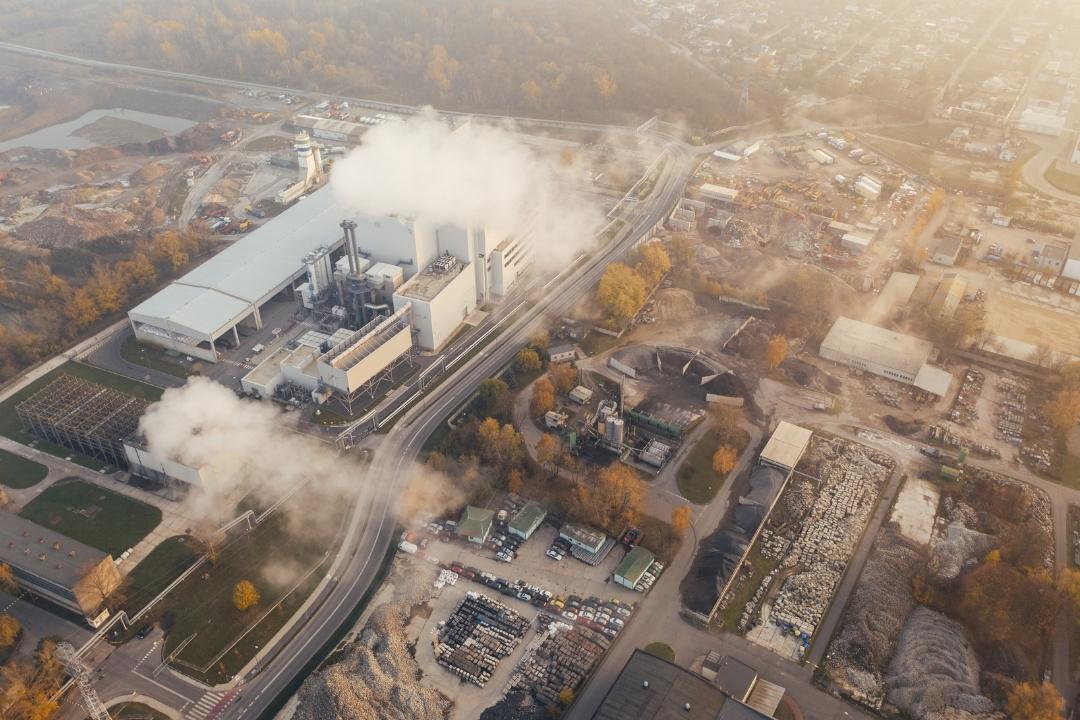PH looking into carbon tax viability
MANILA, Philippines—The Philippines is looking into imposing carbon tax to fight climate change while raising funds for adaptation and resiliency projects.
Finance Secretary Benjamin Diokno told reporters that “if feasible,” carbon tax could also be among the tax measures the current administration would pursue to address climate issues, alongside the push for a levy on single-use plastics.
The fiscal consolidation plan turned over by the Duterte administration to President Ferdinand Marcos Jr.’s economic team proposed to slap carbon tax in 2025.
The DOF has yet to determine how much revenues may be generated from a levy on harmful emissions. For next year, the DOF had proposed a P20-excise tax per kilo on single-use plastic bags, which was estimated to raise P1 billion per year.
In a report last month, the International Monetary Fund (IMF) said that imposing carbon tax will be “progressive” for the Philippines as it will affect the rich who consume polluting oil and carbon products more than poorer households.
“Carbon tax would be regressive in China, Indonesia, and Mongolia, but it would be progressive in India, Kiribati, the Philippines, and Myanmar,” read the IMF working paper titled “The Distributional Impact of a Carbon Tax in Asia and the Pacific.”
The IMF said progressiveness in taxing harmful emissions in the Philippines and three other countries was “because the tax would be paid disproportionately by the richest households.”
In the Philippines, “carbon tax would have the most effect on households in the third quintile, via higher prices, with less of an effect on the top and bottom quintiles,” IMF said, referring to income levels.
“Households in the richest quintile would experience a loss of welfare equivalent to 2 percent of their initial consumption compared to 1.9 percent for the poorest quintile,” IMF said.
“The relative expenditure on gasoline and electricity is greater for richer households, which primarily drives the progressivity for consumers. This progressivity is partly mitigated by coal consumption being larger for poorer households, likely reflecting substitution of energy sources,” IMF said.
“The impact becomes more progressive after factoring in the labor income channel. The burden of the tax via lower labor income falls mainly on the upper two quintiles,” IMF said.
“Households in these quintiles are more likely to work in oil extraction, gasoline refining, the electricity sector, and the natural gas sector compared to households in the lowest quintiles,” IMF added.
According to IMF, “implementing a $50-carbon tax would raise revenues by 0.9 percent of GDP [gross domestic product] in the Philippines, which would be a valuable resource to reduce inequality.”
“Subsidizing motorcycle owners or electricity users would also lower inequality, albeit at lower amounts. Perfect targeting to the poorest 40 percent of households would reduce inequality the most,” IMF said.
“On the other end of the spectrum, subsidizing car or banca (boats primarily used for transport) owners would raise inequality, reflecting the higher propensity for upper income households to own these. It would only take around 6 percent of the carbon tax revenues raised to avoid an increase in inequality using any compensation measure (aside from subsidizing car and banca owners),” according to IMF.
For the IMF, “it would be relatively inexpensive to compensate the most vulnerable households” from carbon tax. In the case of the Philippines, it would cost about 17 percent of the incremental revenues generated by the levy.
IMF said this compensation would “ensure that [poor] households are on average not worse off after the reform,” as its estimates showed, for instance, shedding 2.1 percent in welfare loss in the Philippines for carbon tax worth $50 per ton.
Also, IMF noted that “across the region, small groups of households employed by the energy sector would be heavily exposed to labor income losses.”
IMF estimates showed that in the Philippines, carbon tax would reduce about 6 to 7 percent of household consumption among workers in the energy sector.
“Ensuring that most of the households are better off is more expensive, but still affordable,” IMF said.
“Providing a universal cash transfer or ‘carbon dividend’ to all households to ensure that more than half of the households are better off after the reform would cost only 23 percent of the resources raised by a carbon tax in India and 33 percent in Myanmar,” it said.
“The cost would be around 60 percent for Kiribati and the Philippines, and 80 percent for China. It would be most expensive in Indonesia and Mongolia, where it would take virtually all the resources raised by a carbon tax. Thus, even without using any form of targeting, it would be feasible to make more than half of the country better off after the reform,” IMF added.

